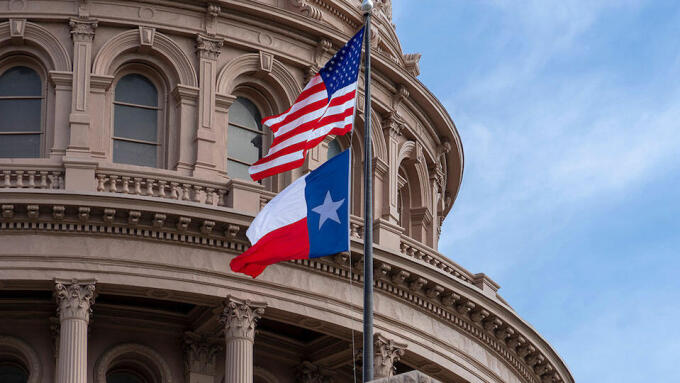AUSTIN, Texas — A three-judge panel of the 5th Circuit Court of Appeals on Tuesday issued an administrative stay of the injunction against enforcement of Texas’ controversial age verification law, which mandates that adult websites post anti-porn propaganda.
In a two-sentence ruling that offers no details or explanations, the panel effectively removed the preliminary injunction, which was obtained last month by Free Speech Coalition (FSC) and other plaintiffs, “meaning that the law is immediately in effect,” TechDirt’s Mike Masnick reports.
As XBIZ reported, on Aug. 31 a federal court in Texas granted the preliminary injunction, thereby blocking the Texas attorney general from enforcing the state’s controversial anti-porn age verification law while the case is litigated.
The Republican-authored HB 1181 was passed by the Texas legislature with bipartisan support in May and was scheduled to go into effect Sept. 1.
FSC Director of Public Affairs Mike Stabile confirmed to XBIZ that the 5th Circuit has temporarily stayed the preliminary injunction in Texas, "in favor of an expedited hearing by a different panel of judges, who will take a closer look at the law in the next few weeks."
"While we remain confident the injunction will hold," Stabile added, "there remains potential risk for adult businesses in the meantime. However, we have reason to believe that the attorney general’s office will refrain from enforcing the law until that hearing. If, however, anyone is receives contact from the state of Texas, or anyone else attempting to enforce the law at this time, we ask that they immediately contact FSC."
A Predictably Partisan Decision by the 5th Circuit Judges
Industry attorney Lawrence Walters, of the Walters Law Group, told XBIZ that the district court’s order granting the injunction against the age verification obligations and compulsory “health warnings” for adult websites was “thorough and well-reasoned.”
“It is very unusual for a federal appeals court to effectively reverse such an injunction without any legal analysis,” Walters explained. “This odd turn of events has created some legal chaos in the short term, which will hopefully be cleared up soon by expedited court proceedings.”
Corey Silverstein, from Silverstein Legal, noted that "it is crucial to stay vigilant, as these developments could have far-reaching implications for online businesses and First Amendment rights."
Silverstein also urged adult stakeholders to consult their legal advisors to understand how this could impact their operations.
According to Masnick’s analysis, the cryptic 5th Circuit decision was predictably partisan, as well as inconsistent with both First Amendment jurisprudence and some of the court’s own recent decisions.
“Just last week we wrote about the decision in the 5th Circuit saying that the government cannot coerce websites regarding how they moderate content,” Masnick writes. “We noted that this seemed to be in near total conflict with last year’s 5th Circuit ruling saying that of course governments can tell websites how to moderate (the only point on which they are consistent is that ‘it’s okay when Republicans do it, and not okay when Democrats do it’).”
Tuesday’s decision, Masnick adds, apparently reinstates HB 1181’s mandate requiring adult websites to post supposed “health” warnings, the content of which originates in religiously inspired anti-porn propaganda rather than the Texas Health and Human Services Department.
The 5th Circuit decision ignores the lower court’s opinion that requiring such warnings violates constitutional protections against “compelled speech” and, as has happened in previous cases where the court appeared to rubber-stamp decisions by Republican politicians, provides no explanation as to its justification or reasoning.
“The law is now in effect and we have no idea what that means because the 5th Circuit has explained nothing,” Masnick concludes.






